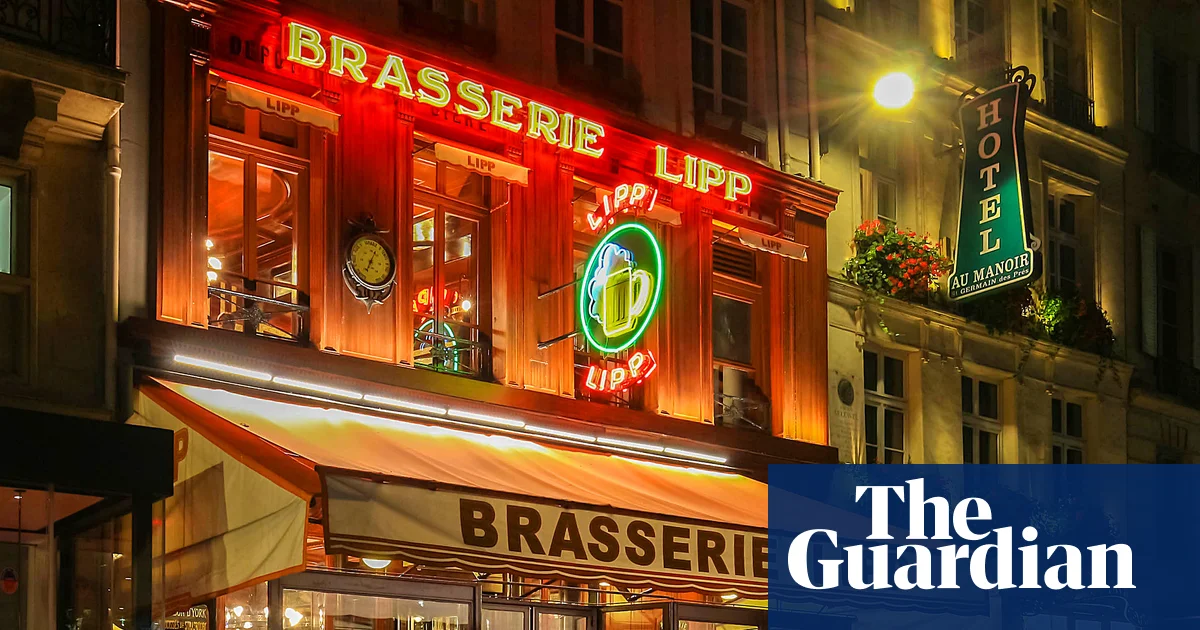‘Alicante cuisine epitomises the Mediterranean’: a gastronomic journey in south-east Spain | Spanish food and drink
I’m on a quest in buzzy, beachy Alicante on the Costa Blanca to investigate the rice dishes the Valencian province is famed for, as well as explore the vast palm grove of nearby Elche. I start with a pilgrimage to a restaurant featured in my book on tapas, Andaluz, a mere 25 years ago. Mesón de Labradores in the pedestrianised old town is now engulfed by Italian eateries (so more pizza and pasta than paella) but it remains a comforting outpost of tradition and honest food.
Here I catch up with Timothy Denny, a British chef who relocated to Spain, gained an alicantina girlfriend and became a master of dishes from the region. Over a fideuá de mariscos (seafood noodles, €20), we chew over local gastronomy. “For me, Alicante epitomises the Mediterranean – for rice, seafood and artichokes,” he says. “But there are curiosities, too, like pavo borracho.” Tim explains that so-called “drunken turkeys” are cooked in vast amounts of cognac plus a shot of red wine and eventually emerge as a hefty stew, perfect in winter.
This passion for experimentation has been endorsed by the Catalan master chef, Ferran Adrià, who once stated “[the Costa Blanca] … has a magical elf that takes hold of the products and sneaks into the kitchens to offer diners unique dishes with unique flavours”.
Tim emphasises the preponderance of female chefs in the area, quite a rarity in Spain’s male-dominated world of gastronomy. “Because in this historically poor region, the choice was often between cooking and cleaning,” he says. As proof we greet the exuberant owner of Labradores, Raquel Sabater, among the vintage plates, tiles and furniture that have barely changed after all these years.
But I soon discover another reason when I meet the much-garlanded María José San Román at Monastrell, her high-end restaurant beside the marina. Here, as we embark on a refined six-course tasting menu (€79), she tells me about the association Mujeres en Gastronomía (MEG) that she founded in 2018 to unite Alicante’s many talented female chefs. Nicknamed the Queen of Alicante gastronomy, this tornado of energy now heads four restaurants, including the heaving Taberna del Gourmet, with another in the pipeline.
Next day, I lunch at another member of MEG, La Sastrería, whose owner, María Luisa Rivera, changed tack 20 years ago from landscape gardener to chef. Her restaurant, a small modernista beauty, overlooks a lush square of towering centennial ficus trees, their tangled trunks echoed inside by a curvaceous staircase. Here I opt for an arroz del senyoret (€19) named for the little lord (or in my case lady) who doesn’t like handling shellfish, so it all comes peeled. The sénia rice from Valencia’s Albufera (a freshwater lagoon) is perfect, each tiny grain separate despite 20 minutes or so cooking in María Luisa’s complex broth.
Now the island of Tabarca, south of Alicante, beckons. An elongated sandstone slab washed by transparent waters teeming with fish, it is a marine reserve and its coves are a snorkeller’s heaven. After a 25-minute ferry crossing from Santa Pola, I disembark with my guide, Felipe, who fills me in on Tabarca’s rich history.
Despite being the smallest inhabited island in Spain, it has seen Greeks, Romans, Berber pirates, smugglers and shipwrecked Genoese sailors who settled there when a military garrison was created in 1760. Quite a history for an islet. Although the garrison later decamped, stone gateways remain leading to quaint streets, a striking church and leafy squares. It’s a dreamy place if you get there before the lunchtime crowds.
I am in search of a unique fisherman’s stew combined with rice. This caldero is, like paella, named after its cooking dish – in this case a cast iron hotpot. At La Almadraba, the owner, a woman called Nines, explains the technique: two courses (€30) start with a succulent dish of potatoes and fish simmered in a broth of alioli, garlic, saffron and parsley so good that I spoon out the remains; it is followed by the rice cooked in the same concoction. The upshot is a fabulous feed overlooking bobbing boats in the harbour and a glittering Med beyond.
Another day, another quest, this time in Elche, inland from Santa Pola and 15 miles from Alicante. The city is famed not only for the exquisite Dama de Elche (a fourth-century BC sculpture of a bejewelled Iberian woman) but also for its vast palm grove. About 200,000 date palms in the largest palmeral in Europe and the northernmost in the world have earned the city Unesco world heritage status. Most of the palms are divided into a grid of rectangular huertos (orchards) fed by irrigation channels that also nourish fruit trees such as pomegranate, citrus and olives.
Miguel Ángel Sánchez, owner of Elche’s largest date company, TodoPalmera, leads me around the Museo del Palmeral, where an enlightening display covers every aspect of the palm tree, whether the plant structure, the use of palm wood and fibre and, extraordinarily, intricate “sculptures” made with white palms for Elche’s Easter processions. For Miguel Ángel, “the palm has so much value: cultural, religious, environmental, nutritional, agricultural, ornamental, functional and spiritual”.
He says that Elche’s date production of about 80 tonnes restricts availability in Spain, so it remains a gourmet product. Five varieties include the widely known Medjoul as well as the local Confitera, which I sample at Miguel Ángel’s farm – freshly harvested, yellow, velvety and utterly delicious. Despite my addiction to Palestinian Medjoul dates, this is an epiphany. When I later spot them at Alicante’s cornucopian Mercado Central, into my bag they go.
My last arroz lunch looms. Instead of indulging at highly rated Mesón el Granaíno, we head south of town to 90-year-old El Cachito, an unpretentious family restaurant. Here I watch another woman, Noelia, orchestrate the flames of grapevine branches in a cavernous, blackened fireplace. The result? A perfect paella of rabbit and wild snails (€18), its glistening grains as flawless as the artichokes grown in her vegetable garden, and as luscious as Elche’s dates.
The trip was provided by spain.info, costablanca.org and visitelche.com. Fiona stayed at Hotel Serawa Alicante, which has doubles from £97, room only

